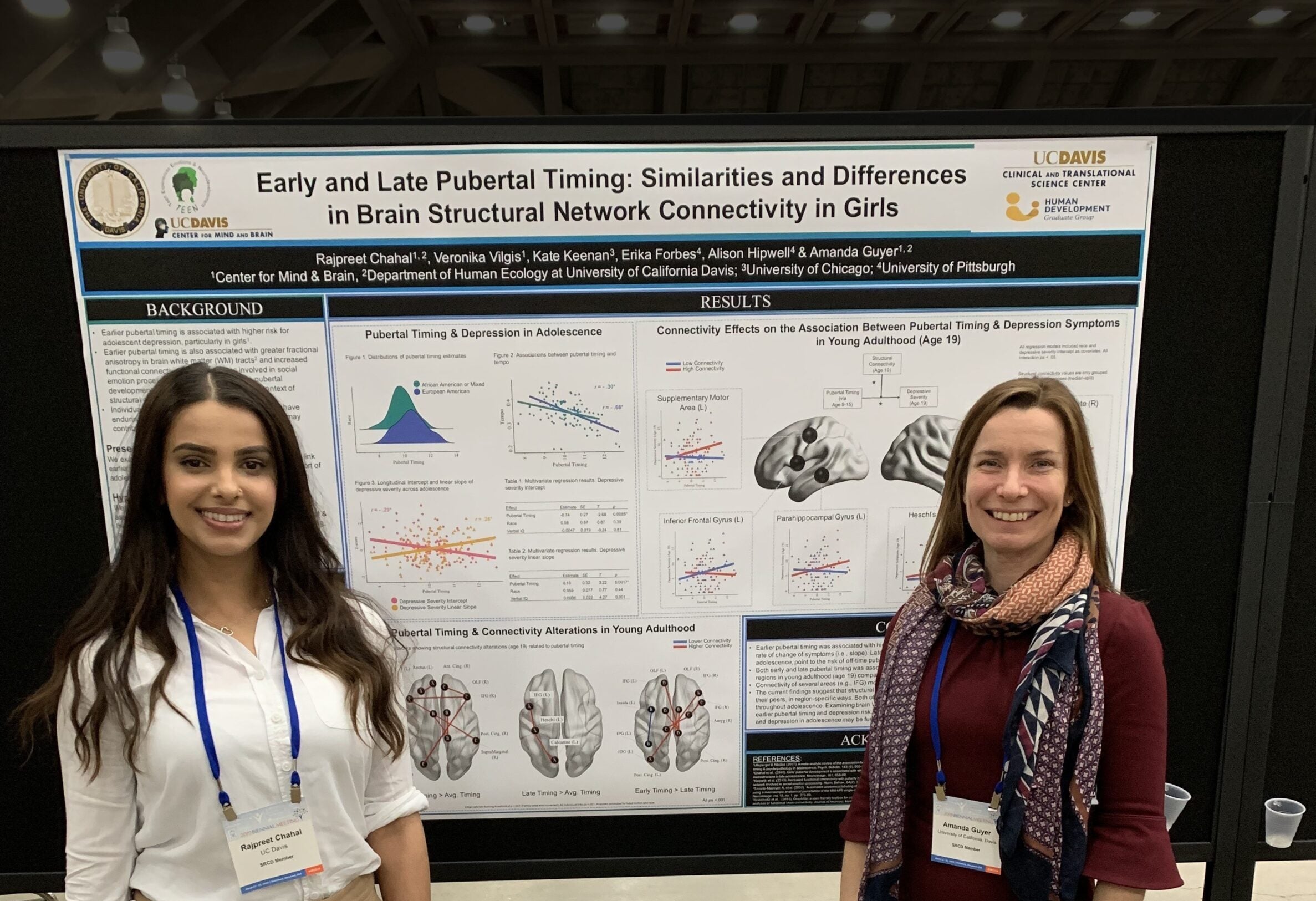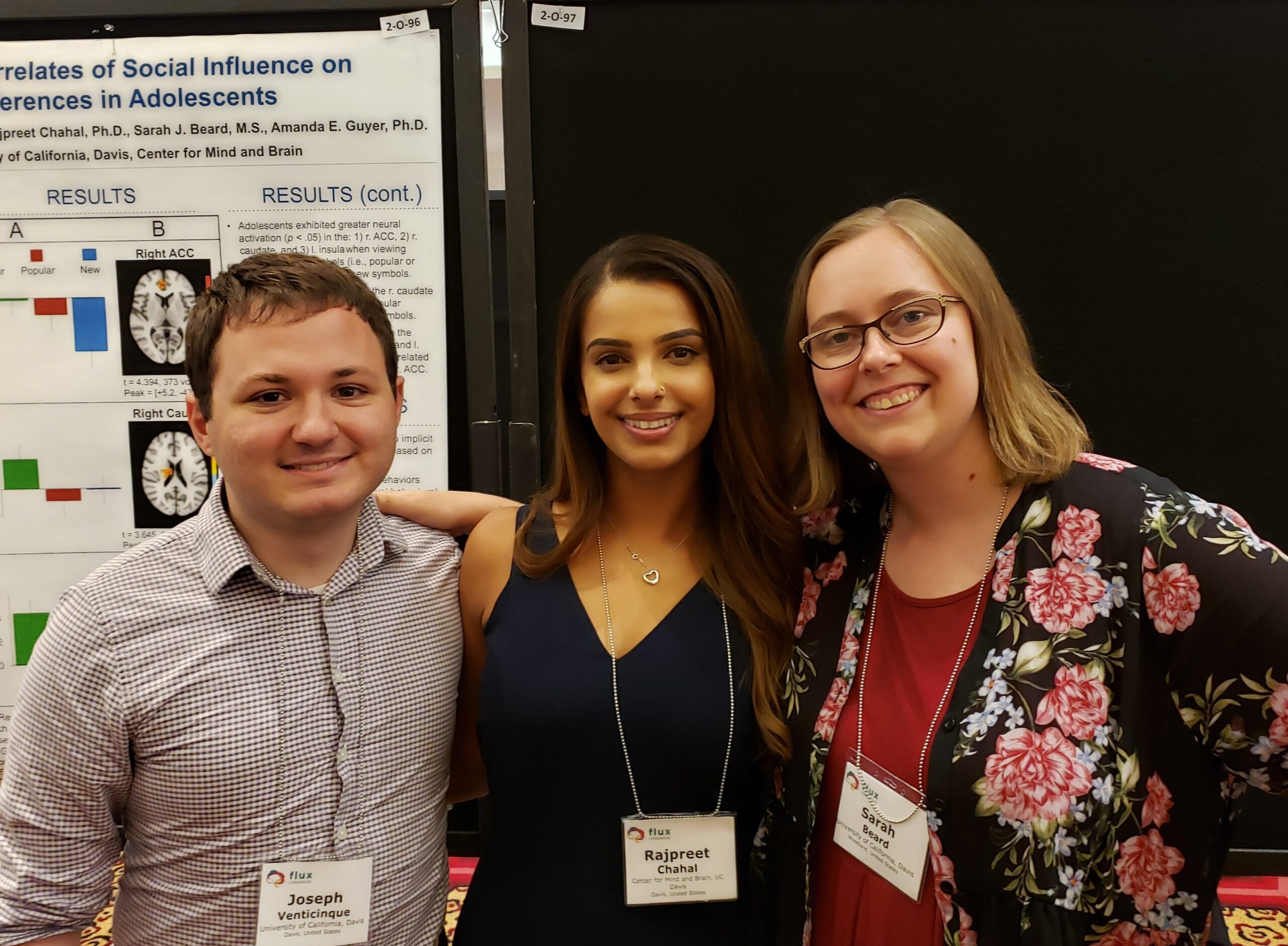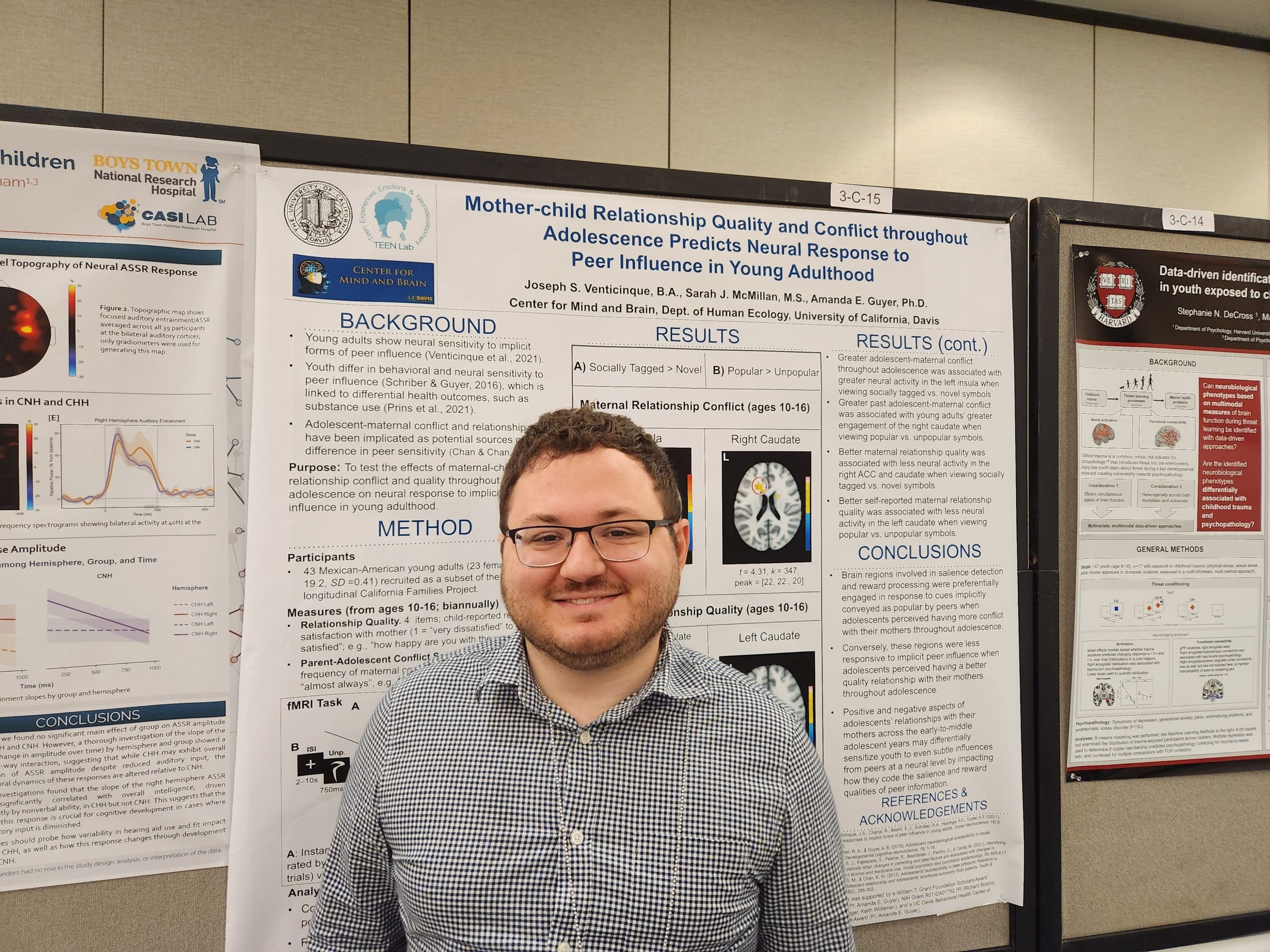Amanda E Guyer, Victoria R Choate, Kevin J Grimm, Daniel S Pine, and Kate Keenan (2011). J Am Acad Child Adolesc Psychiatry, 50(2):180-90.
OBJECTIVE: To examine the association between memory for previously encoded emotional faces and depression symptoms assessed over 4 years in adolescent girls. Investigating the interface between memory deficits and depression in adolescent girls may provide clues about depression pathophysiology. METHOD: Participants were 213 girls recruited from a longitudinal, community-based study; the majority were African American. Scores on depressive screening measures at age 8 were used to increase the base rate of depression. Depression symptoms anddiagnoses were assessed annually for 4 years. In year 4, when the girls were 12 to 13 years old, a face emotion encoding task was administered during which ratings were generated in response to sad, fearful, angry, and happy faces. A surprise memory task followed whereby participants identified which of two faces, displaying neutral expressions, they had seen previously. RESULTS: Girls with higher depression symptom levels from ages 9 to 12 years evidenced lower accuracy in identifying previously encoded emotional faces. Controlling for IQ, higher depression symptom level was associated with a memory deficit specific to previously encoded sad and happy faces. These effects were not moderated by race. CONCLUSIONS: Individual differences in face memory deficits relate to individual differences in emerging, early adolescent depression, and may be vulnerability markers for depression.




